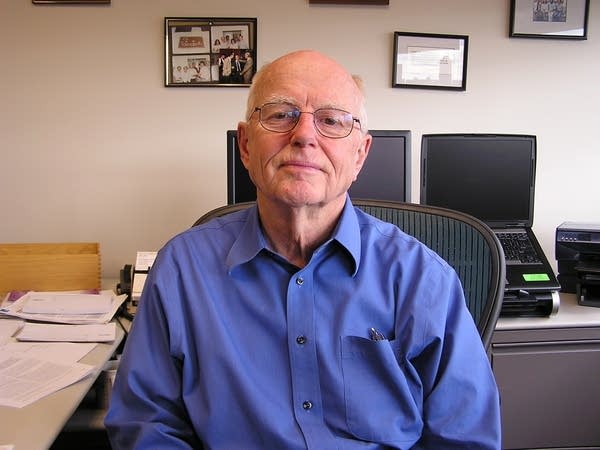John Kersey, U of M cancer research pioneer, dies

Dr. John Kersey, leader of the University of Minnesota team that successfully completed the world's first bone marrow transplant for lymphoma in 1975, has died at the age of 74.
Kersey was a longtime professor at the University of Minnesota. He is the founding director of the University's Masonic Cancer Center, and from 1974-1995 he directed the U's Blood and Marrow Transplant Program.
During an interview with MPR News in 2008, Kersey reflected on the attitudes that were prevalent in medicine during his early career -- before the university had successfully treated childhood cancer patients using bone marrow transplantation.
"Back in those days it was very common for people to say, if a child has a very severe disease there's nothing that can be done about it," said Kersey. "And the attitude amongst my colleagues here (at the U of M) was no, we should be trying new things. We should be doing things we can to cure these diseases."
Create a More Connected Minnesota
MPR News is your trusted resource for the news you need. With your support, MPR News brings accessible, courageous journalism and authentic conversation to everyone - free of paywalls and barriers. Your gift makes a difference.

The first lymphoma patient that Kersey cured is still alive today. Dave Stahl was 16 at the time of his transplant. In an interview with MPR News in 2008 Stahl said he was aware that his rare form of cancer, called Birkitt's Lymphoma, had always been fatal and that the university's experimental bone marrow transplant was his only hope for survival.
"They (U of M researchers) tried something new and took a long shot, and it worked," said Stahl.
Despite Kersey's success using bone marrow transplantation, he yearned for the day when researchers would find a less risky technique to treat cancer patients.
"My dream has always been that at some point in the future these (bone marrow transplants) won't be necessary, and that we will have something simpler, such as a pill that you can take for cancer or better yet to prevent it," said Kersey in 2008.
Kersey was a graduate of Dartmouth Medical School and the University of Minnesota Medical School. He is a past president of the International Society for Experimental Hematology and the American Society for Blood and Marrow Transplantation.
A memorial service in Kersey's honor will be held Thursday, March 21 at 6:30 p.m. at the U of M's McNamara Center.
